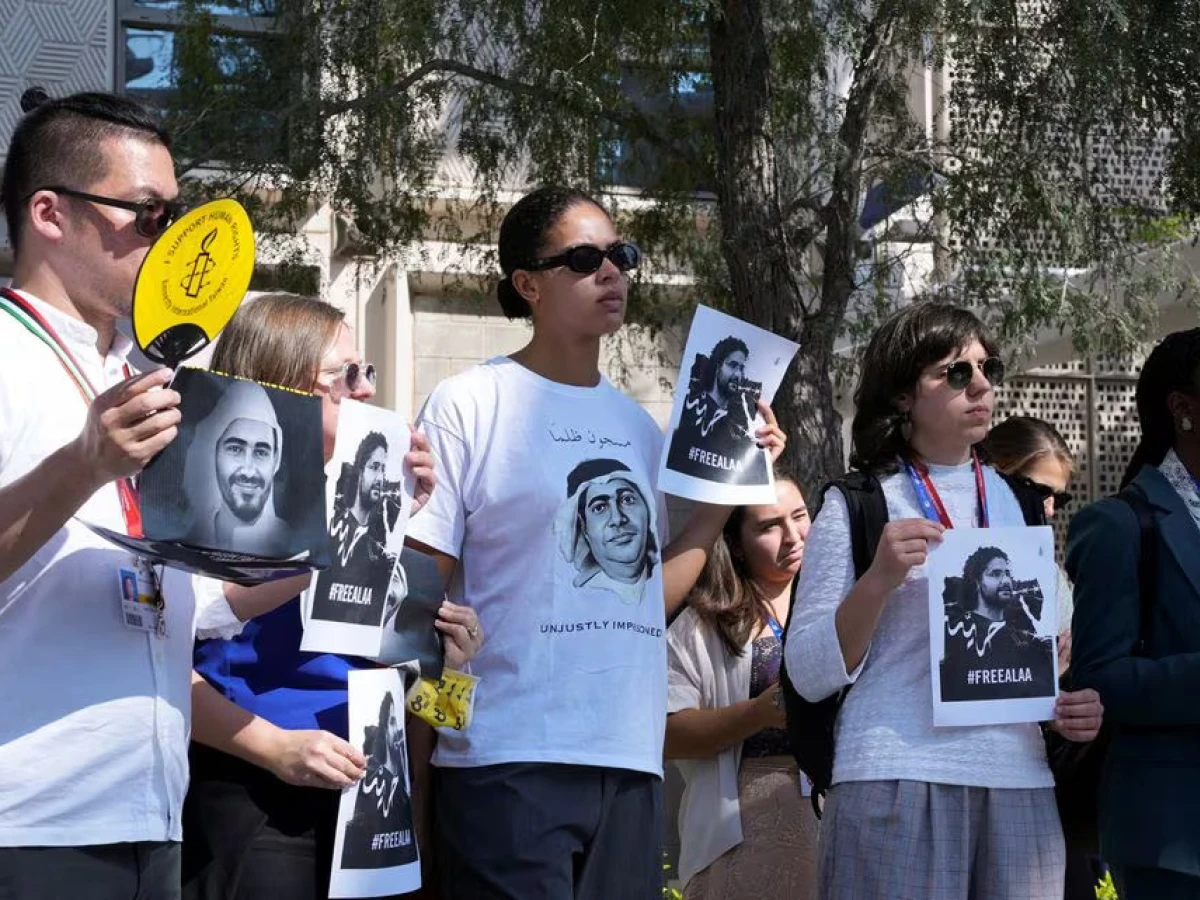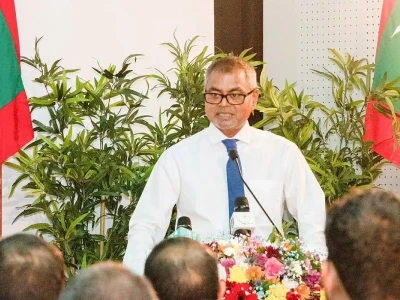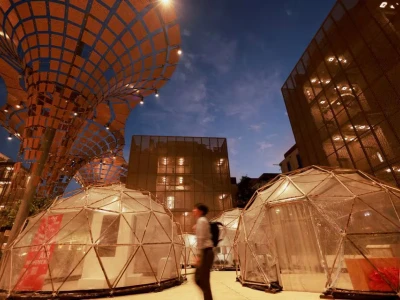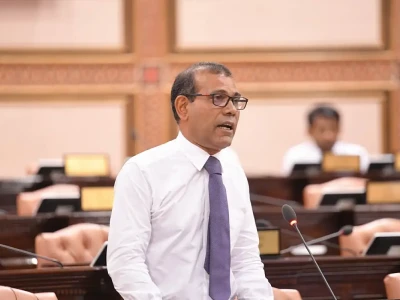
Activists stage rare UAE politics protest during COP28 climate summit
Most protests have taken place within the summit's "blue zone" area which is under U.N. control and where local laws do not apply.
DUBAI, Dec 9 (Reuters) - A small group of demonstrators staged a very rare protest in Dubai on Saturday in the COP28 U.N. climate summit site to demand the release of pro-democracy activists imprisoned in the United Arab Emirates and Egypt.
About 25 activists took part in the protest, holding up pictures of Emirati prisoners Ahmed Mansoor and Mohamed al-Siddiq and Egyptian-British political activist Alaa Abdel Fattah.
Human Rights Watch described the protest as historic for taking place in the UAE, which tolerates little public dissent and bans organised groups such as political parties and labour unions.
As a condition of hosting COP28, the UAE had agreed to allow protests to take place there under U.N. guidelines that require any demonstrations to be approved in advance and limited to the summit site.
Most protests have taken place within the summit's "blue zone" area which is under U.N. control and where local laws do not apply.
"In the spirit of inclusivity, peaceful assemblies in designated areas have been and continue to be welcomed," an Emirati official said.
"The UAE does not comment on individual cases following judicial sentences," the official added.
Unlike at past U.N. climate talks that sparked huge protest rallies, including 2021's COP26 in Glasgow and 2015's COP21 in Paris, there have been no demonstrations outside the venue.
"These names (of political prisoners) have never been said out loud in the UAE, and the release has never been publicly demanded in this way," Saudi Arabia and UAE researcher at HRW Joey Shea said.
Siddiq was jailed in the UAE in 2013 along with 68 others on charges of plotting to overthrow the government after a trial that rights group Amnesty International described as grossly unfair.
An Emirati court sentenced Mansoor to 10 years in prison in 2018 after being charged with crimes including using social media to harm national unity and social harmony and damage the country's reputation.
Abdel Fattah, who has been repeatedly detained in Egypt since the 2011 "Arab Spring" uprising, was most recently sentenced to five years in prison in 2021 on charges of spreading fake news.




